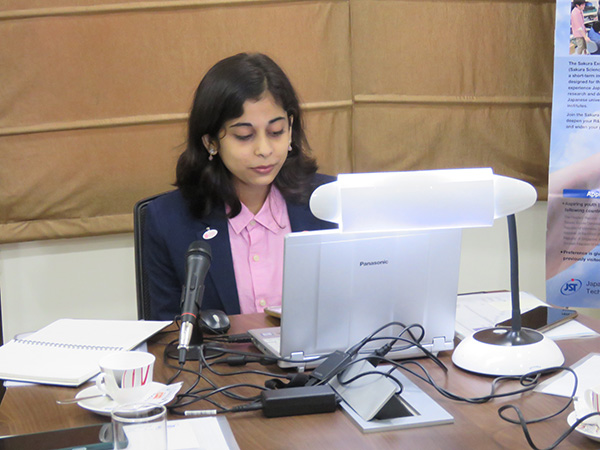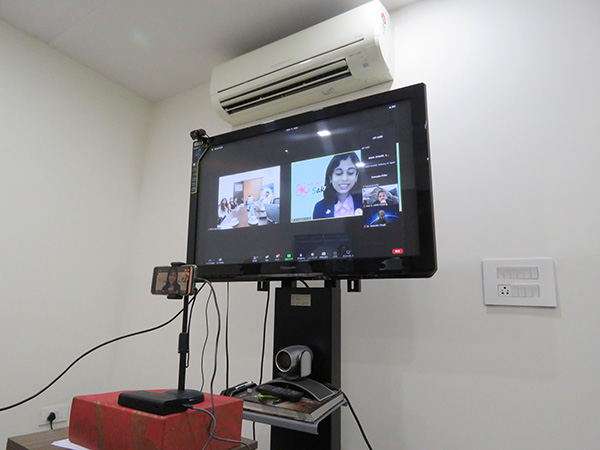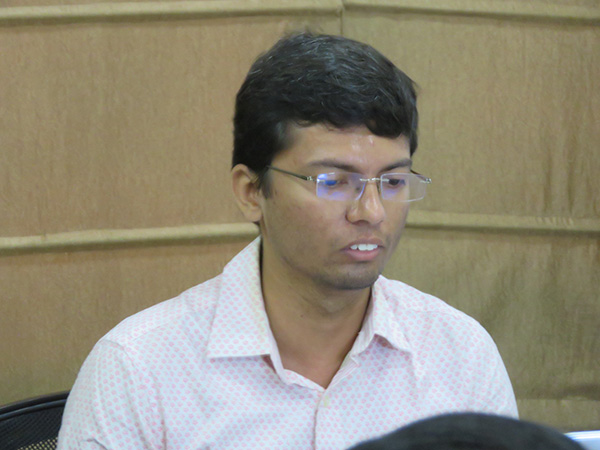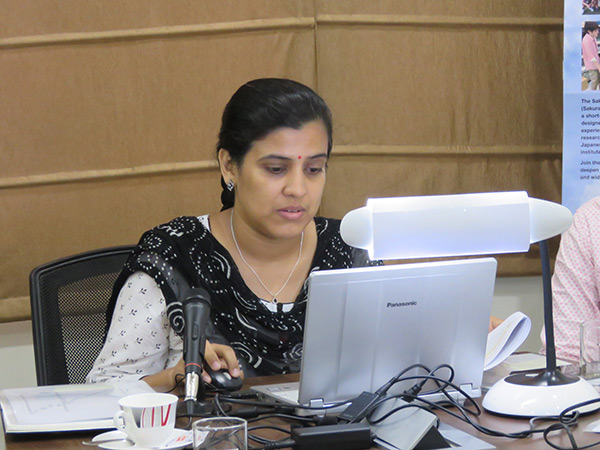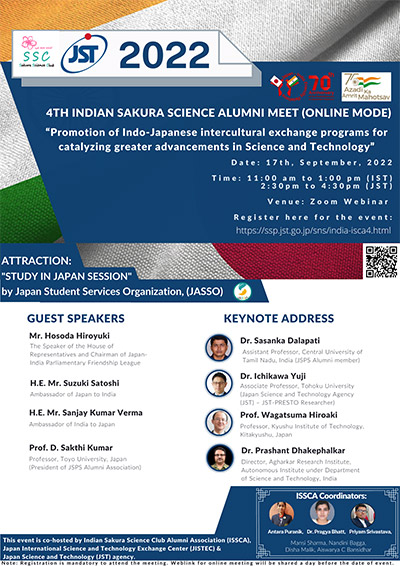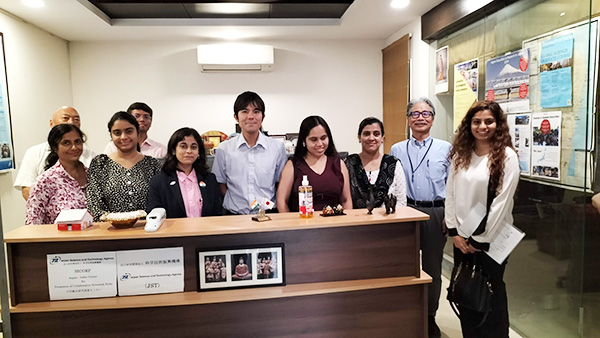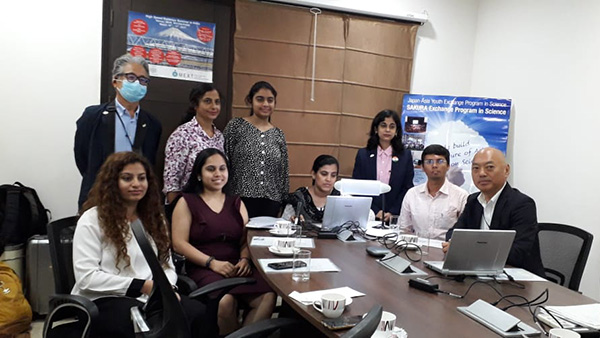Events
The 4th ISSCA Alumni Meeting Emphasized Significance of Exchange
On September 17th, 2022, SSC alumni, students, researchers, and guests gathered online for the 4th ISSCA (India Sakura Science Club Alumni Association) Meeting, titled “Promotion of Indo-Japanese Intercultural Exchange Programs for Catalyzing Greater Advancements in Science and Technology”. Streamed from JST’s India Liaison Office in New Delhi, the event showcased how exchange programs led to fruitful collaboration.
The secretariat wishes to thank all coordinators of ISSCA, namely, Dr. Pragya Bhatt, who doubled as moderator and presenter, presenter Mr. Priyam Shrivastava, who also created our SNS flyer, Ms. Aishwarya Bansidhar, who created the website flyer, Ms. Antara Puranik, who took on the role of main coordinator to streamline all preparations, and Dr. Jeetender Chugh, the former ISSCA main coordinator.
We would also like to extend our deep gratitude to our honorable guests, Mr. Hosoda Hiroyuki, the Speaker of the House of Representatives and Chairman of the Japan-India Parliamentary Friendship League, H.E. Ambassador Suzuki Satoshi, H.E. Ambassador Sanjay Kumar Verma, and Dr. D. Sakthi Kumar, President of the Indian chapter of JSPS (Japan Society for the Promotion of Science) Alumni Association (IJAA), for their constant warm-hearted support
Dr. D. Sakthi Kumar, who is also a Professor at the Graduate School of Interdisciplinary New Science at Toyo University, introduced IJAA’s activities that support collaboration between Indian and Japanese researchers. Their most recent seminar was held on September 9-10, 2022, in Hyderabad, where researchers gathered to discuss the frontiers of science and to also enjoyed the cultural performances.
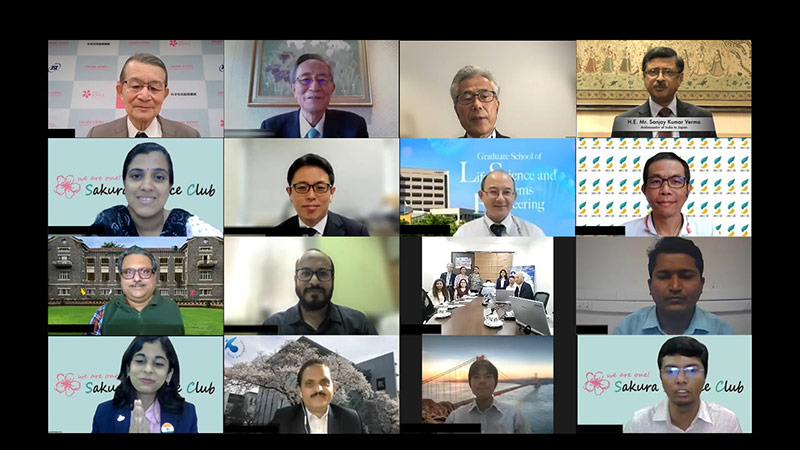
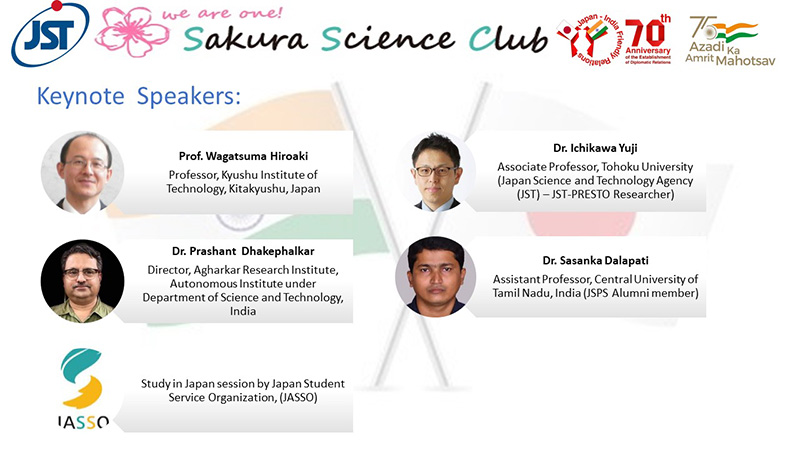
KEYNOTE SESSION 1
Prof. Wagatsuma Hiroaki
(Professor from Graduate School of Life Science and System Engineering, Dept. of Human Intelligence System, Kyushu Institute of Technology, aka “Kyutech”)
Prof. Wagatsuma recalled his5 years involvement with the Sakura Science Program (SSP). From 2015 to 2019, he invited Indian researchers to participate in his brain-inspired robotics course. To date, Kyutech has invited 36 undergraduates, graduates, and postdoc students to do research at their campus. SSP was put on hold in early 2020 due to the covid pandemic, but workshops and lectures have been held online since then. Pending approval, the professor hopes to resume in-person collaboration next year.
In his presentation, he shared photos taken during the exchange program: students studying brain-inspired robotics, including brain signal processing, motion control and capture technologies, EEG recording, eye-tracking, robot operating systems and design, 3D printers, and many others cutting edge technologies. In addition to scientific research, the professor also arranged cultural tours of Kitakyushu, which include food culture exchanges, such as making udon noodles.
KEYNOTE SESSION 2
Dr. Ichikawa Yuji
(Associate Professor from Fracture and Reliability Research Institute, Graduate School of Engineering, Tohoku University and JST-PRESTO* Researcher)
Dr. Ichikawa introduced his lab’s recent work in “non-melting additive manufacturing pioneered by the knowledge of mechanics.” This technology is used in things like protective coatings on materials such as pipes and hoses. Coatings are usually applied using molten materials, but Dr. Ichikawa’s laboratory is researching the so-called Cold-Spray Method, which uses solid powder to create coatings. His team coated aluminum pipes with copper by spraying copper powder onto the pipes at supersonic speeds.
The goal of this research is to better understand how “dynamic nanomechanochemistry” ─reactions that occur at nanoscale and in extremely short time ─ that can lead to new and potentially better processes for manufacturing materials. He wholeheartedly welcomes interested Indian researchers to Japan to join his laboratory. He sincerely hopes that “this fascinating field of research could be a key to promoting India-Japan exchanges.”
*PRESTO is a research funding framework by JST which “promotes unique and challenging, internationally high-level basic research to address the important problems facing our country.”
KEYNOTE SESSION 3
Dr. Prashant Dhakephalkar
(Director, Agharkar Research Institute)
Dr. Prashant Dhakephalkar spoke about his research into new processes to cheaply and ecologically produce hydrogen and methane from agricultural waste like rice straw. Currently, over 50% of rice straw in India is simply burned, but that straw contains energy which can be extracted.
One traditional problem with such waste is that it contains materials that are not easily digested by microorganisms. Environmentally harmful chemicals are used to break down the waste. Dr. Dhakephalkar’s laboratory found a consortium of 12 different bacteria, fungi, and archaea, which can break down the indigestible materials into simpler, digestible carbohydrates.
In terms of collaboration opportunities, Dr. Dhakephalkar is looking to improve field implementation, develop diagnostic and reactor-monitoring tools, and further develop microbial cultures. They are ready to accept students from Japan to teach them their techniques.
KEYNOTE SESSION 4
Dr. Sasanka Dalapati
(Assistant Professor from Central University of Tamil Nadu)
Dr. Sasanka Dalapati’s first research stay abroad was to in Japan with a very competitive IMS (Institute for Molecular Science) postdoctoral fellowship (2013-2015). This was followed by the conferment of and the highly prestigious JSPS (Japan Society for the Promotion of Science) postdoctoral fellowship at IMS and at JAIST (Japan Advanced Institute of Engineering Science and Technology), Japan (2015-2017).
He spoke about his experiences and how Japanese culture (kindness, dedication, discipline) motivated him. He pointed out that because of Japan’s hospitality and advanced research infrastructure, he was able to conduct his research smoothly in the field of advanced functional materials, namely Covalent Organic Frameworks (COFs), for energy and environmental applications. These experiences and accomplishments helped him achieve his goals.
SHARING SESSION 1
Mr. Priyam Shrivastava
(ISSCA Coordinator - PhD scholar in Materials Engineering at the Indian Institute of Technology Jammu)
After a group photo session, Mr. Priyam Shrivastava gave a step-by-step advice in his presentation “An Approach to Study in Japan”. He recommended that Indian students choose Japan as a country for further studies because it has many cutting-edge facilities and a long history of high-quality research.
He himself came to Japan through the Sakura Science Program (SSP) and studied at Kyutech. Later, he was selected for the METI Japan Internship Program. This provided him with a scholarship to work for two months as a mechanical engineer in Mito City at Yoshida, Inc.
He advised Indian students to look for relevant universities or laboratories, to check their eligibility requirements, to look for funding or scholarships, and to prepare application documents. Students pursuing master’s degrees or PhDs also need to contact their potential professors, because guarantee letter from supervisors are required for study visas.
Besides the MEXT scholarship, he highlighted the Post-graduate study on Nano-Satellite Technologies (PNST) fellowship program, granted through a partnership between the United Nations Office for Outer Space Affairs, the government of Japan, and Kyutech. This program is accepting applications until January 9, 2023.
In closing, Mr. Shrivastava gave examples of professional request letters that students can use when contacting universities. A sample format is included in his presentation material.
SHARING SESSION 2
Dr. Pragya Bhatt
(ISSCA Coordinator - Senior Scientific Associate, Science & Engineering Research Board, Department of Science and Technology - DST, New Delhi)
Finally, the Alumni Meeting’s moderator, Dr. Pragya Bhatt, spoke about her own experiences. She visited Japan in 2016 as a young researcher through SSP, where she participated in a workshop and a conference, and met researchers from all over Asia. Her research involves ion collisions in molecules, and her visit to Japan had a big impact on her work. At Tokyo Metropolitan University, she had access to instruments that helped her further refine her experiments. Following her work in Japan, she published several articles in peer-reviewed journals and presented at several conferences in multiple countries.
Additionally, she found the country very safe. She had several wonderful excursions during her time in Japan. Social activities were fun, but occasionally difficult because of dietary restrictions. However, with a bit of help, she was able to find vegetarian food. She and all the speakers thanked the audience for listening and hoped for further collaborations between India and Japan.
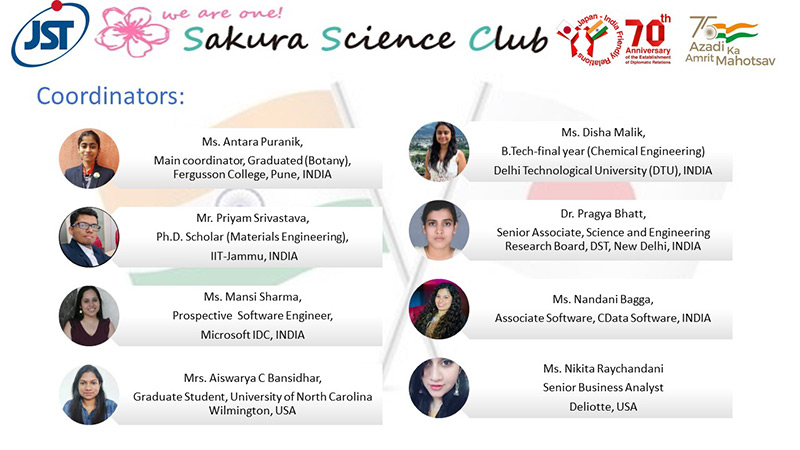
STUDY & WORK IN JAPAN SESSION
Mr. Raymond Tan
(JASSO Malaysia Office)
In the final session, Mr. Raymond Tan provided the fundamentals of studying in Japan. JASSO, the Japan Students Services Organization, falls under the jurisdiction of Japan’s Ministry of Education Culture, Sports, Science and Technology (MEXT). Besides direct application to universities that offer courses in English (TOEFL iBT score 71-80; IELTS score 5.5-6 required), he also explained the application route for courses taught in Japanese using the EJU (Examination for Japanese University Admission for International Students – EJU score 200-250 required).
At the post-graduate level, Mr. Tan emphasized that obtaining informal consent from the thesis advisor before applying is extremely important, and this process may take 6-12 months. Mr. Tan explained that there are many scholarships you can apply for after you arrived in Japan. There are on-campus scholarships, and even tuition-exemption or -reduction systems. He also touched on the career support centers at Japanese universities and the positive prospects for employment in Japan after graduation.
